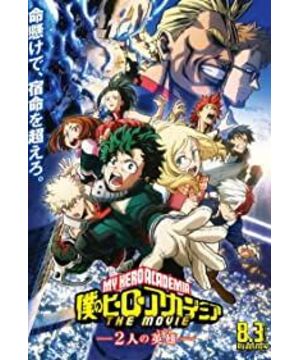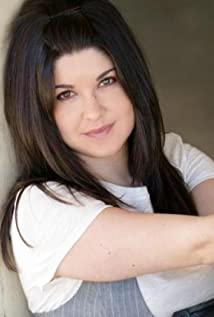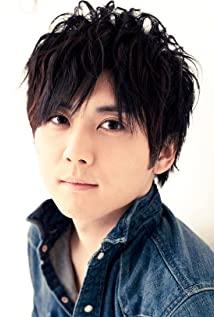I'm also a fan of "My Hero Academia", and the comics have been chasing it. After watching "My Hero Academia: Two Heroes", I am quite satisfied and enjoy the viewing process. And for friends who haven't watched "My Hero Academia", if you like this theatrical version, then I recommend you to go after the original work (here refers to the main line of animation), the level of excitement is definitely better. After all, this theatrical version is the theatrical version of the anime, so it is impossible to discuss it completely without the original anime. So next, I will talk about "My Hero Academia: Two Heroes" in two aspects.
(1) Plot and characters
The style and spiritual outlook of this theatrical version are in the same line as the original comics, and they are all about blood. The degree of completion is relatively high, the theme is also very focused, and there are no superfluous roles. Although the classmates of Izuku Midori also appeared in the theatrical version, but they have a certain role in promoting the plot, but they will not appear in the whole class. Many students are just a picture.
It is worth mentioning that the reason why the number of characters is just right is because in the animation of "My Hero Academia", the characters of each classmate in the class are very vivid, flesh and blood. , which is why I love this anime so much. In the face of so many vivid characters, the theatrical version has chosen a few characters that can promote the plot, which is quite cautious. Among the students who appeared in the theatrical version, the roles of humor, combat power, and support are also clearly defined, which is a good job. When I saw their debut, I felt as if I saw a familiar smiling face, and I immediately felt that "Ah, this is the theatrical version of "My Hero Academia", that "familiar taste of old sauerkraut"— —Well, I'll jump right in.
The above is for anime fans.
For ordinary audiences who have not been exposed to the original animation, the theatrical version has also been methodical in the introduction at the beginning. Through the combination of fighting scenes and Izuku Midori's description, ordinary viewers can also quickly enter the world of "My Hero Academia" and learn about Izuku Midori's identity, character relationships, and world background. Of course, for fans, the initial character introduction took a little more time, especially the introduction of All Might's friends, which actually didn't require too much introduction, and the dialogue was a little cumbersome. As for the fight at the beginning, it's like the fighting scene in "The Incredibles", which basically sets the tone of the entire theatrical version.
When it comes to the plot, the overall rhythm is also progressing in an orderly manner. At first, the characters appeared, and then an accident happened. The professional heroes were all tied up, and only the hero students could be dispatched. This is normal. After all, Izuku Green Valley is not a professional hero. If you don't restrain professional heroes, there will be no drama for Izuku Green Valley when fighting monsters. After that, the big boss sent the younger brother and the robot to obstruct the actions of Izuku Green Valley and others, and when Green Valley Izuku met the big boss, there was a twist and turns - for a while, All Might's friend was a badass , a friend's assistant is a villain, and at the same time it also leads to the mastermind behind the ultimate boss of all for one. There is a gradual escalation when dealing with opposing forces, and the rhythm is very good.
In the third act, that is, when the big boss is played, the twists and turns of the fighting scenes are very exciting. It seems that if you want to win, you will come to a boss to upgrade; if you look desperate, there is hope again; Knowing exactly how to win in the end, although it will definitely win. At the same time, the sense of oppression of the big boss is still very strong, which is indeed very good. If the big boss is too weak, then there will be no hearty feeling after victory. Moreover, the use of fake endings in the theatrical version is very good, similar to the fake endings in "The Terminator", but the repeated use is a bit too much, but the effect is still good, which makes people look very cool.
(2) About the name of the hero
The subtitle of this theatrical version is two heroes, but in my eyes, I am afraid that some of the names are not worthy of the name. These two heroes should specifically refer to Izuku Midori and All Might. I don't think both of them have performed well in this theatrical version to restore the heroic spirit of the original anime - although both are fighting bad guys, they lack some rescue plots.
This is how I understand the heroes of "My Hero Academia". Heroes not only have great power and can subdue the enemy, but also give people a sense of security and save others. Especially compared to other hero animations like The Incredibles, Spider-Man: Into the Spider-Verse, etc., the heroes in My Hero Academia are very special, which is attributed to the rescue plot.
In the original novel, Izuku Midori, who was powerless at first, rushed out without hesitation to save Bakugou. That scene was really moving, and All Might's rescue of Izuku (inheriting personality abilities) also made people cry . Later, in order to save people in the entrance examination, Green Valley Izuku defeated the monster with zero points at the cost of damage to the body and possible failure of the assessment. In the rescue of the little girl, the third-grade hero Tsutsukata lost his personality (power) in order to save the little girl. These are the best shaping of the hero image in "My Hero Academia", and it is also the reason why the hero characters in this anime are unique.
In the theatrical version, Izuku Green Valley and others acted to resolve the crisis, and All Might acted to defeat the enemy, both of which lacked the cost of saving the plot and saving people (the price of injury is still not strong enough). Although there are scenes of saving people (such as the scene of saving a friend's daughter), the main storyline of the entire theatrical version is not driven by saving. Moreover, the motivation for saving people is somewhat generalized and empty, because the innocent people to be saved are just a conceptual group. I used to be moved to tears when I watched "My Hero Academia" because of the unrelenting sacrifice and rescue plot, but in the theatrical version it lacked such moving and tears. Therefore, I think this theatrical version is full of blood, but it is still slightly inferior to the main line of the anime. Of course, this is also due to space constraints, so you can't blame too much.
Epilogue
To be honest, after watching My Hero Academia: Two Heroes, I have a lot of emotions. On the one hand, it is the emotion of the anime "My Hero Academia". The heroes in this story and the imagination of the alternate world are very good. I hope to continue to see wonderful stories in the future. On the other hand, I thought of other hero anime and even domestic anime. American comic heroes become heroes in self-doubt and affirmation, while the heroes of "My Hero Academia" have a spirit of sacrifice without hesitation, giving people a sense of security and a great image. These are diverse definitions of heroes, wonderful and beautiful.
Further, I thought of domestic animation (here refers specifically to the movie version), although the picture quality is already impressive, but the story is still weak, and more importantly, it lacks a spiritual outlook. In fact, the plot of "My Hero Academia: Two Heroes" couldn't be simpler, and there is no three-dimensional animation on the screen, but it makes people watch with blood and smile after watching it. Hope to see such a wonderful story in Guoman.
Welcome to the headline number and public number of the same name (Fugui Film Review)
View more about My Hero Academia: Two Heroes reviews











